He commands the spiritual devotion of over a billion Catholics across the globe, holds one of the most recognisable roles in the world, and leads a sovereign state.
Yet the Pope – the supreme head of the Roman Catholic Church – does not earn a traditional salary.
Instead, the Vatican, the world’s smallest independent country, provides for the pontiff’s every need – from accommodation and food to travel, healthcare, and security.
In fact, Pope Francis, known for his frugal and humble lifestyle, actively refused any form of personal income throughout his time as Head of the Church from 2013-2025.
While technically the Pope may be entitled to a modest salary – estimated at around €2,500 a month (roughly £2,150), his decision mirrors that of his namesake, St. Francis of Assisi, and reflects his commitment to simplicity and the poor.
Previous popes have also never been known to draw lavish salaries. Instead, the Vatican supplies what is essentially an all-expenses-paid life.
Housing is traditionally provided in the opulent Apostolic Palace, although Francis famously chose to remain in the simpler Domus Sanctae Marthae guesthouse on Vatican grounds.
Though the Pope does not receive a wage, he is far from destitute. Estimates of Pope Francis’s net worth, which includes access to papal assets and Vatican-funded services, have hovered around £12million.
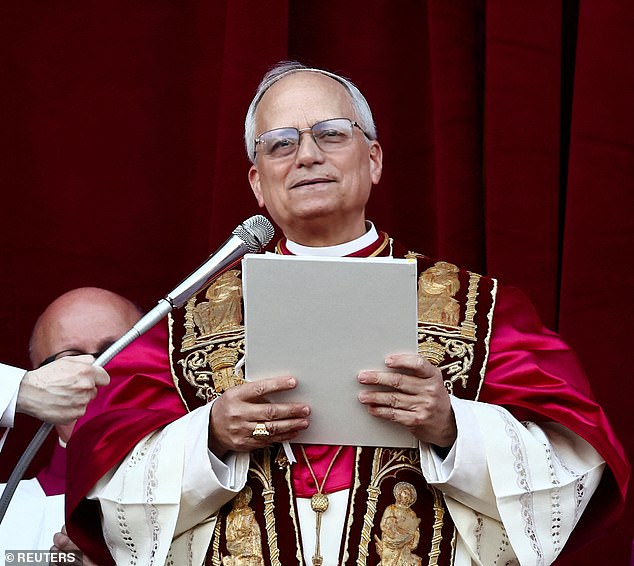
The new Pope, who will be known as Pope Leo XIV, has criticized the Trump administration’s moves on immigration repeatedly and expressed support for progressive causes
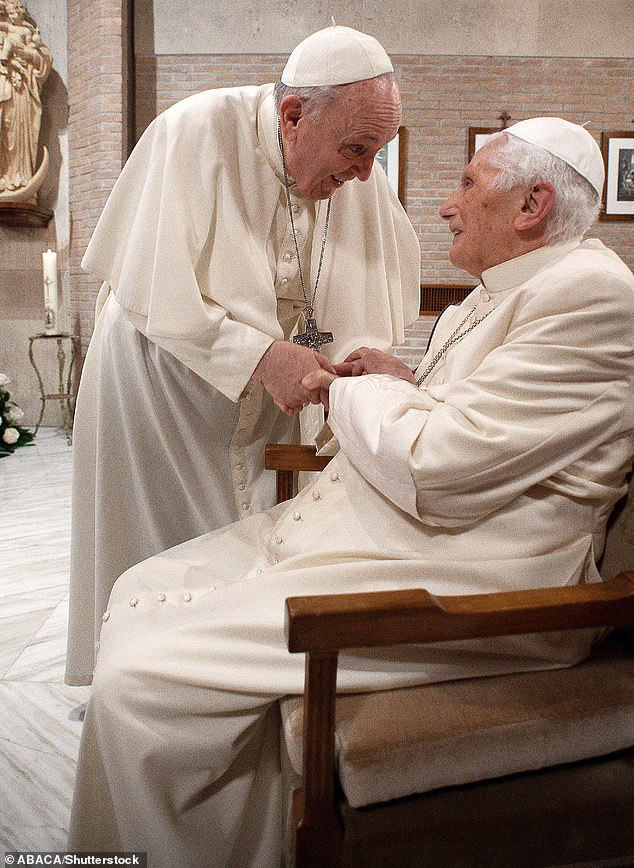
Pope Francis meets with his predecessor, the former Pope Benedict XVI at the Vatican, November 2020. The pair’s relationship was depicted in 2019 film Two Popes
He has access to a fleet of vehicles, official residences, and a generous allowance for charitable donations, such as when Pope Francis gave €200,000 to inmates of a Roman prison.
Yet these resources are not for personal indulgence. Popes are expected to uphold spiritual stewardship, not financial gain.
In fact, the role comes with lifelong responsibilities – even after retirement, as seen with Pope Emeritus Benedict XVI, who lived within the Vatican until his death in 2022.
The Vatican itself relies on a complex mix of donations, investment returns, and revenue from tourism and the Vatican Museums.
One of its most famous sources of income is Peter’s Pence – an annual collection from Catholics around the world that generates approximately £20million a year.
The largest contributions come from the United States, Germany, and Italy.
But while the Vatican’s reputation might suggest deep pockets, its financial situation has been anything but stable.
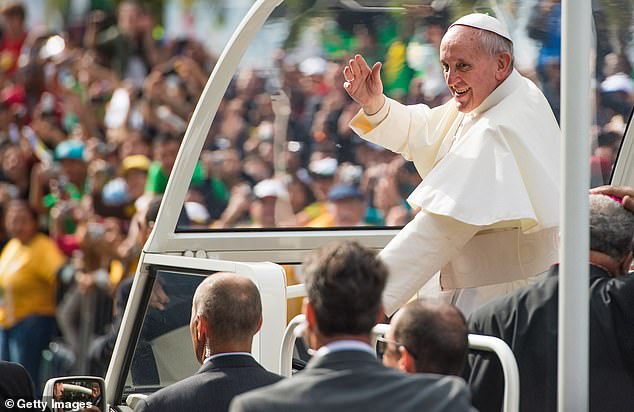
Pope Francis waves from the Popemobile as he arrives to celebrate Mass on Copacabana Beach in Rio de Janeiro, Brazil, during his first foreign trip since becoming pontiff, July 28, 2013
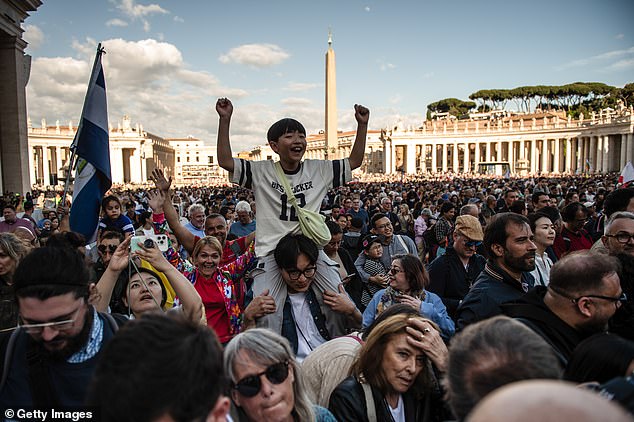
One of its most famous sources of income is Peter’s Pence – an annual collection from Catholics around the world that generates approximately £20million a year
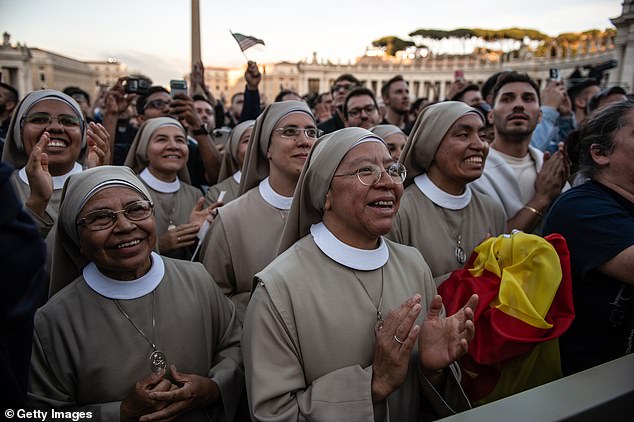
Monks and nuns, who often take vows of poverty, generally do not receive any salary unless holding administrative positions within the Church
In 2023, it reported a staggering £70million operating deficit, prompting concern from Pope Francis over the long-term viability of its pension fund for Vatican employees.
In response to ongoing financial concerns – worsened by the pandemic – Francis enacted sweeping salary cuts in 2021.
Cardinals, who previously earned between €4,000 and €5,500 per month, saw their pay slashed by 10 percent.
Bishops now take home around €3,000 a month, while ordinary priests in Rome average just €1,200.
Monks and nuns, who often take vows of poverty, generally do not receive any salary unless holding administrative positions within the Church.
Francis also moved to end the tradition of offering subsidised Vatican apartments to senior clergy – an attempt to bring spending under control and demonstrate his commitment to transparency and fairness.












